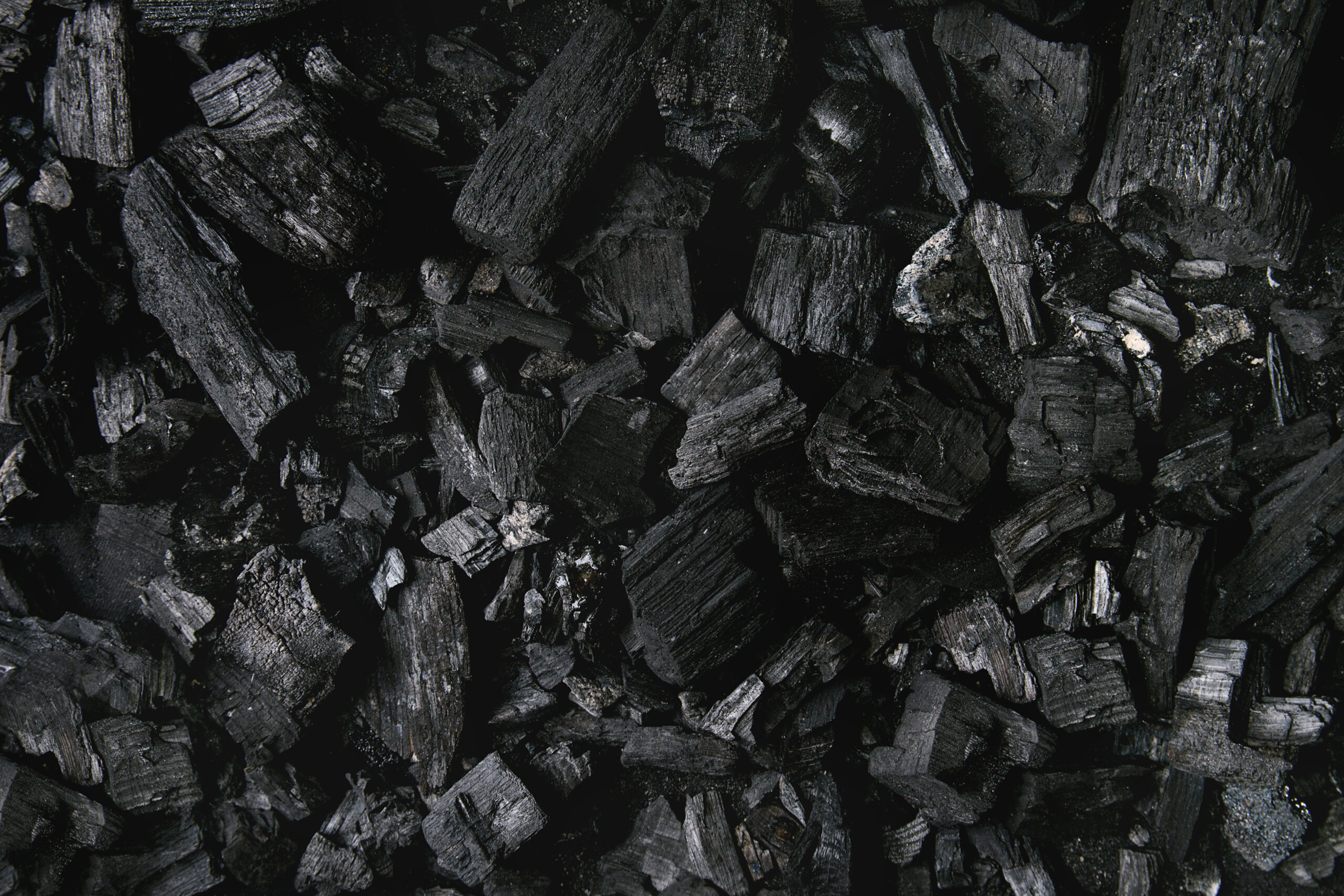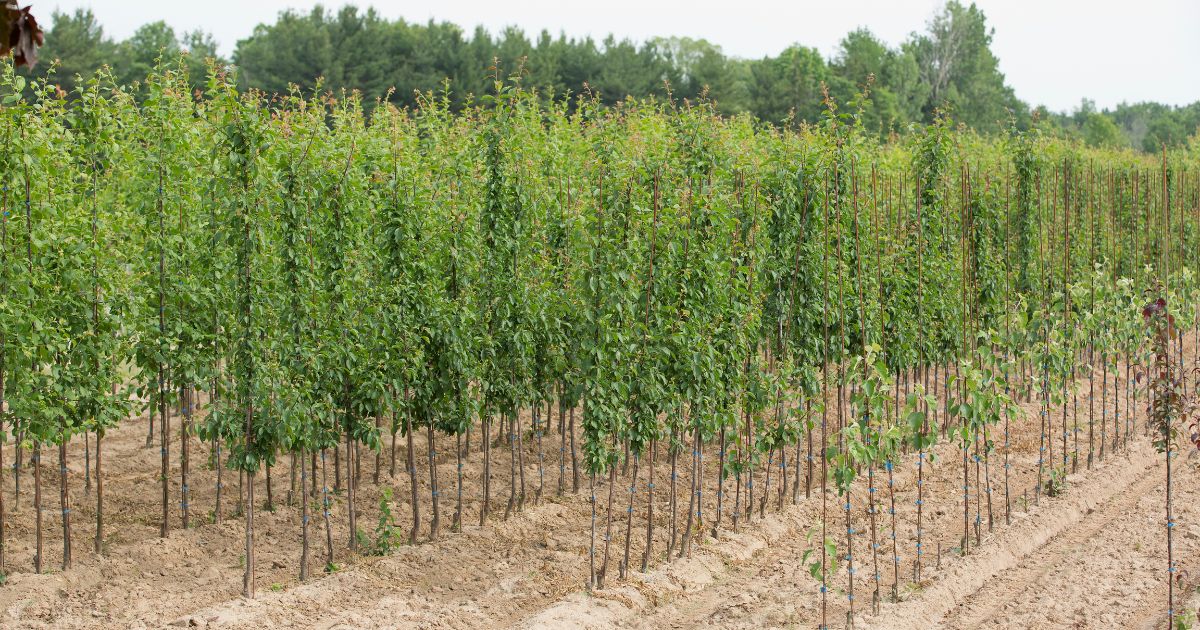Biochar
Home > Biochar

Agricultural Biochar
Biochar offers a plethora of benefits in agricultural practices, making it a valuable resource for farmers and environmentalists alike. One significant advantage is its ability to enhance moisture retention in soil, crucial for sustaining plant growth, especially in fast draining soils or during dry spells. By holding water more effectively, biochar supports plants during drought periods and reduces the need for frequent irrigation, contributing to water conservation efforts. Additionally, biochar aids in nutrient retention by preventing the leaching of essential minerals like nitrogen, phosphorus, and potassium, ensuring plants have consistent access to vital nutrients for healthy development. This nutrient retention property not only benefits plant growth but also minimizes the need for additional fertilizers, thereby reducing costs for farmers and mitigating environmental impacts associated with excessive fertilizer use, such as water pollution.
Furthermore, biochar plays a pivotal role in sequestering carbon, a critical aspect in combating climate change. When integrated into soil, biochar acts as a stable carbon sink, effectively locking carbon dioxide from the atmosphere for, in some cases, hundreds to thousands of years. This process helps offset greenhouse gas emissions and contributes to carbon neutrality or even negative emissions in agricultural systems utilizing biochar. Moreover, biochar’s porous structure creates a favorable environment for beneficial soil microbes, promoting soil health and enhancing overall ecosystem resilience. Improved soil structure and microbial activity further support plant growth, root development, and overall crop productivity, leading to sustainable and resilient agricultural practices that align with environmental stewardship goals.
Biochar and Specialty Crops
Biochar offers distinct advantages for the cultivation of specialty crops, such as fruits, nuts, berries, and ornamental plants, which often require specific soil conditions to thrive. As a soil amendment, biochar improves soil fertility and structure, enhancing water retention and nutrient availability in soil profiles that demand high management for specialty crops. This capacity for moisture retention is particularly beneficial in drought-prone areas or in soils that naturally struggle to maintain water, helping plants resist stresses associated with water scarcity. Additionally, biochar’s ability to retain nutrients ties directly into its effectiveness in reducing the leaching of essential nutrients such as nitrogen and phosphorus, ensuring these critical inputs remain within the root zone for optimal plant uptake.

This feature not only maximizes the efficiency of fertilizers but also reduces the need for frequent applications, lowering input costs and minimizing environmental impact. Biochar also helps in stabilizing soil pH, an important factor for crops sensitive to soil acidity or alkalinity. Moreover, the porous nature of biochar can promote microbial activity in the soil, which plays a crucial role in nutrient cycling and uptake by plants. These characteristics make biochar an invaluable resource for growers aiming to enhance productivity, sustainability, and profitability in specialty crop cultivation.






Biochar for Lawn and Garden
Homeowners and landscaping contractors can leverage the benefits of biochar to enhance their home gardens and landscapes, mimicking many advantages seen in agricultural settings. One key benefit is biochar’s ability to improve moisture retention in soil, which is particularly beneficial for maintaining healthy plants in residential gardens, especially during hot and dry periods. By holding moisture more efficiently, biochar reduces the frequency of watering, conserving water resources and ensuring plants receive consistent hydration for optimal growth.
Moreover, biochar contributes to nutrient retention in home gardens by preventing nutrient leaching, ensuring plants have access to essential elements like nitrogen, phosphorus, and potassium.
This nutrient stability promotes lush foliage, vibrant blooms, and robust fruiting in garden plants, reducing the need for excessive fertilization and minimizing potential environmental runoff into waterways.
In addition to moisture and nutrient benefits, incorporating biochar in home gardening practices supports carbon sequestration efforts. Biochar’s ability to capture and store carbon dioxide helps mitigate greenhouse gas emissions at a local level, contributing to a more sustainable and eco-friendly gardening approach.
Furthermore, biochar fosters a healthy soil ecosystem by providing a habitat for beneficial soil microbes, improving soil structure, and promoting root development. This enhanced soil health translates into stronger, more resilient plants that are better equipped to withstand environmental stresses, pests, and diseases, resulting in a flourishing and sustainable home garden.
Biochar for Trees and Nurseries
Incorporating biochar into tree planting and nursery practices offers numerous benefits that support tree health, growth, and environmental sustainability. One primary advantage is biochar’s ability to enhance moisture retention in soil, which is crucial for establishing healthy tree root systems and reducing water stress, especially during dry spells or in arid climates. By improving water availability and reducing irrigation needs, biochar promotes successful tree establishment and growth, essential for reforestation, urban forestry, and landscaping projects.
Moreover, biochar plays a pivotal role in nutrient retention within nursery soils, ensuring young trees have access to vital nutrients for vigorous growth and development.

This nutrient stability not only supports initial tree establishment but can also eliminate the reliance on synthetic fertilizers, minimizing environmental impacts associated with nutrient runoff and pollution.
Furthermore, biochar contributes significantly to carbon sequestration efforts when integrated into tree planting and nursery substrates. Its ability to capture and store carbon dioxide from the atmosphere helps offset greenhouse gas emissions, contributing to climate change mitigation and environmental sustainability in forestry practices.
Additionally, biochar fosters a beneficial soil environment for tree roots by improving soil structure, enhancing microbial activity, and promoting nutrient cycling. This healthy soil ecosystem translates into resilient, thriving trees that are better equipped to withstand environmental stresses, pests, and diseases, ultimately contributing to sustainable forestry practices and ecosystem resilience.

Biochar for Water Treatment
Biochar has gained recognition and utilization in water treatment applications due to its remarkable properties that contribute to effective and sustainable water purification processes. One significant advantage of biochar is its high surface area and porous structure, which make it an excellent adsorbent for a wide range of contaminants in water, including heavy metals, organic pollutants, and even pathogens. This adsorption capacity allows biochar to effectively trap and immobilize contaminants, improving water quality and safety.
Moreover, biochar’s adsorption properties extend to nutrients like phosphorus and nitrogen, making it valuable in addressing eutrophication issues in water bodies.
By capturing excess nutrients, biochar helps prevent algal blooms and oxygen depletion, promoting a healthier aquatic ecosystem.
Additionally, biochar plays a role in pH stabilization and buffering in water treatment processes, helping to maintain optimal pH levels for aquatic organisms and treatment efficiency. Its alkaline nature can also contribute to the removal of acidic compounds and pollutants from water, further enhancing water quality.
Furthermore, biochar aids in microbial activity and biodiversity in water treatment systems. Its porous structure provides a habitat for beneficial microorganisms that can aid in the degradation of organic pollutants and the improvement of water clarity.
Overall, integrating biochar into water treatment applications offers a sustainable and cost-effective approach to water purification, with benefits including contaminant removal, nutrient management, pH stabilization, and support for microbial activity. This eco-friendly solution contributes to cleaner water resources and healthier aquatic environments, aligning with goals of environmental protection and sustainable development in water management practices.
FAQs
Yes, with the enormous surface area of biochar it acts as a small city for microbes, nutrients, and water. When the plants are ready to use them they are around and the plants use up what they need.
When the pyrolyzed feedstock is completed, the carbon is left in a solid stable form and does not rise into the atmosphere as Co2.
The best method is to activate the biochar through inoculation. This makes the biochar ready to be used immediately and does not deplete the soil around it. The amount of biochar added will depend on the soil quality you are starting with. Frequent longterm applications will build great long lasting soil.
Biochar has the ability to absorb and lock in nutrients that would otherwise be used to fuel algae or excessive plant growth. It can also pull other contaminants out of the water column as well. Different feedstock and pyrolyzing temperatures can have an affect on how much can be absorbed. There are some loading techniques that can allow for targeting high levels of certain contaminants.
Biochar has a lot of agricultural uses. To name a few: Biochar is a great additive to crop and pasture health. Moreover, it can be used as a feed additive for animal health, it can be added to a slurry to help with odor and microbial activity, and biochar can even be added to manure to make a high quality compost.
Ask A Question
Do you have a question or are you looking for resources related to sustainable technologies for agriculture, water treatment, and ecosystem restoration? Reach out below!

